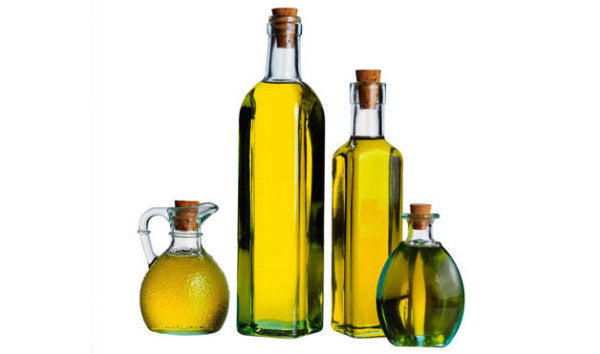Say No to Canola

I often get asked about different cooking oils. In my opinion, canola seems to be one of the most toxic on the market and continues to be pumped into the food system now more than ever. This heavily processed oil is derived from the genetically modified rapeseed plant and is often accompanied by an organic label to confuse consumers about its health and safety benefits. Perhaps this was the reason why the Canadian government paid $50 million to the American FDA to deem it as a safe food item. This oil has toxic effects on the body, particularly the pancreas.
That said, the rapeseed plant is toxic to all living things and easy to grow because insects won’t eat it. Monsanto has genetically modified ninety percent of all rapeseeds grown in the US and Canada. When the oil is extracted, it releases a terrible smell which is chemically processed with hexane, the vapor portion of gas used as a deodorizer. This and other chemical treatments during processing makes virtually all canola impossible to really be “organic.”
Although rapeseed comes from the mustard family, it is high in erucic acid, which is a monosaturated omega-9 long-chain fatty acid. Long-chain fatty acids have been known to cause the following:
- Increases the risk of pancreatic and lung cancer
- Interrupts the skin barrier function
- Increases the risk of miscarriage during pregnancy
- Increases allergies
- Increases autoimmune disease
- Causes fatty degeneration of the heart
- Damages heart muscle
- Increases the risk of Edema
- Destroys myelin sheath, which protects the nerves and brain
- Irritates mucosa membranes in the body
- Interferes with thyroid function
- Interferes with kidney function
- Congests and increases fatty liver disease
- Amplifies gluten intolerance as it’s grown in rotation with wheat
Studies done by Canadian researchers in the nineties showed that canola oil severely depleted vitamin E in the system, which supports blood, the brain, and skin. The same studies reported problems with platelet count and size because it was believed to be caused by the latex-like consistency it forms once it is in our blood system.
One of the biggest concerns with long term consumption of canola is the effect it has on the nervous system. Canola oil destroys the protective insulation of the nerves referred to as the myelin sheath. This is known to deteriorate memory and brain function, cause numbness, tingling, allergies, anxiety, and much more. In 2017 a study written about in scientific reports documented the effects of Canola oil leading to weight gain and Alzheimer symptoms.
The best thing you can do is to read labels and avoid the use of canola and other toxic oils such as soybean, rapeseed, vegetable, rice bran, cottonseed, corn, margarine, safflower, refined palm oil, sunflower, peanut, grapeseed, and all hydrogenated and partially hydrogenated oils. Replace all of these oils in your home with healthier, safer options. I always recommend healthier oil options, such as:
- Extra virgin olive oil, no heat to medium heat
- Unrefined Coconut oil, no heat to high heat, and baking
- Sesame oil, no heat to high heat
- Avocado oil, no heat to high heat
- Walnut oil, no heat
- Grass-fed organic butter or organic ghee, no heat, medium heat, and baking
- Hemp oil, no heat
- Chia oil, no heat
- Pumpkin seed oil, no heat
Always try to purchase raw, cold-pressed, first pressed, unrefined, and organic oils to ensure quality. Look for brands in darker glass bottles to prevent the oil from going rancid. Make sure to read labels and ask what oils are used when eating out and buying prepared foods. Contact your favorite brands about healthier oil options in their products as well. Following these simple steps will help phase out the toxic oil industry, one purchase at a time.
Read more about healthy oils here: https://www.agentnateur.com/blogs/agent-tips/the-good-and-the-bad-oils-you-should-and-should-never-cook-with
***THESE STATEMENTS HAVE NOT BEEN APPROVED OR REGULATED BY THE FDA. WE ARE NOT DOCTORS, THEREFORE ALWAYS CONSULT WITH YOUR DOCTOR FIRST.





